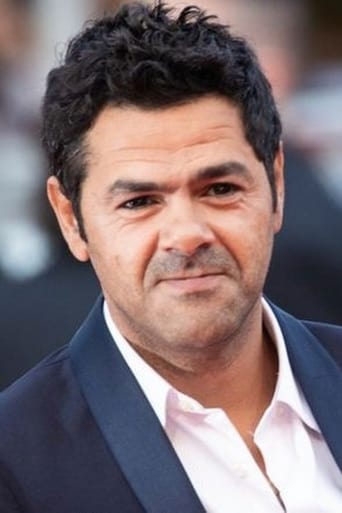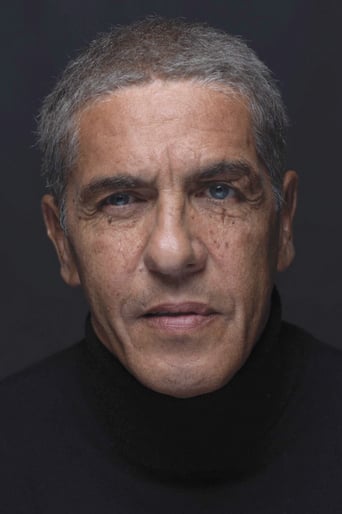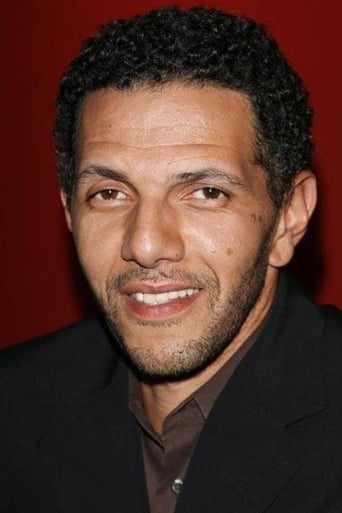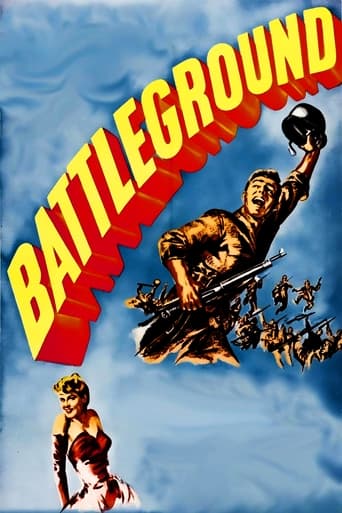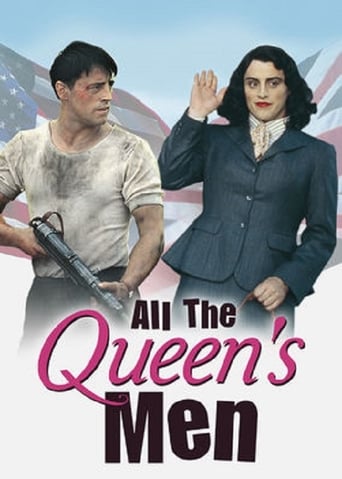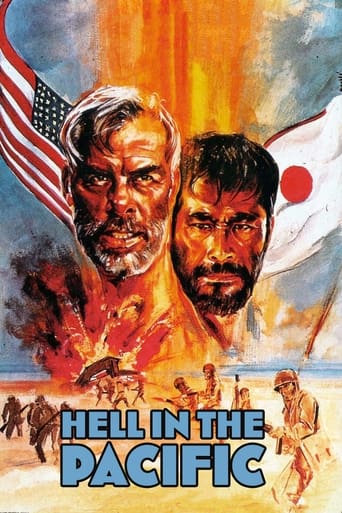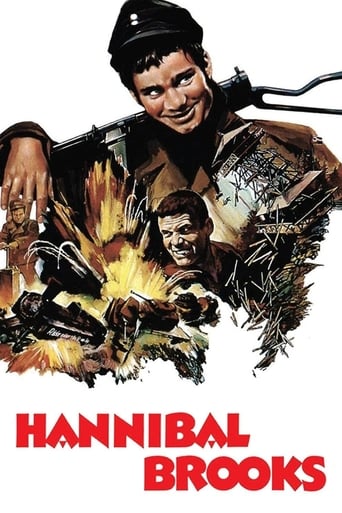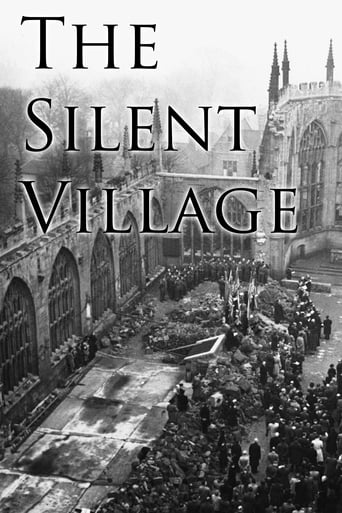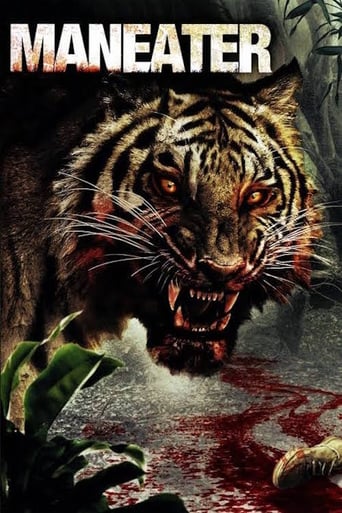
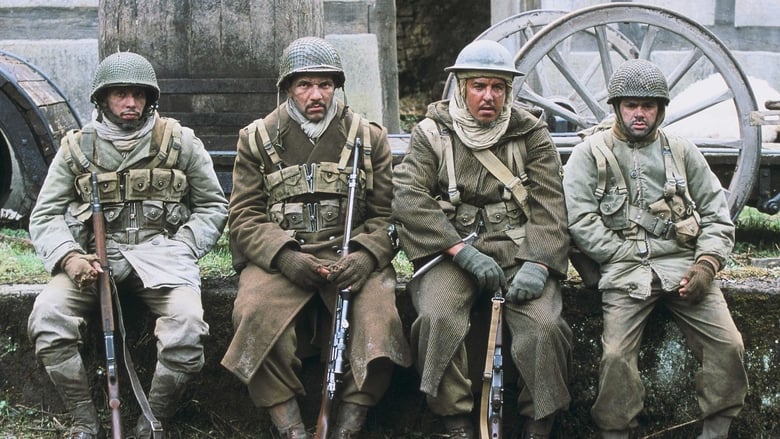
Days of Glory (2006)
1943. They have never stepped foot on French soil but because France was at war, Said, Abdelkader, Messaoud and Yassir enlist in the French Army, along with 130,000 other “indigenous” soldiers, to liberate the “fatherland” from the Nazi enemy. Heroes that history has forgotten…
Watch Trailer
Cast


Similar titles
Reviews
This is a masterpiece, an epic tragedy that resembles a critical and uncovered chapter of human's struggle against discrimination, poverty, tyranny and inequality, this movie explains a lot about the diversity of the modern days French society and the historical right of Arabs in France through the sacrifices of their ancestors to liberate France when it was in its weakest state, defeated, occupied and humiliated.The original title in French is "indigènes" (indigenous) which refers to the native North Africans in French culture, I find this title more relevant than the English more commercial one "Days of Glory".For the first half of the movie I wasn't getting the "glory" in nomad soldiers from the remote villages or Algerian mountains recruited in the French army to liberate France from German invasion! that was absolute dishonor according to my principles, it was obvious that French commanders don't give a damn to the number of casualties between Arab and African soldiers as long as they achieve a symbolic victory over their oppressive opponent, discrimination was institutionalized, even "returning home" meant to French commanders returning to the French mainland, not returning every soldier to his own village in Africa.Soldiers mingle into the French territories with people cheering and praising their courage in the battlefield, Arab soldiers feel they belong to France, Saiid says to a French young lady that was listening to his courage stories: "je libère une pays, c'est mon pays" (I liberate a country, it's my country).Soldiers are now fighting for glory, for the principles of the French Revolution (liberté, égalité, fraternité) and under the slogans of Charles de Gaulle, they fight against Nazism and tyranny, they reject the German temptations to dilute their loyalty to the French army, they still see clear discrimination but still aspire for equality and fair compensation when they complete their mission and liberate what's now their own land, France.Music plays a great part in this movie, soundtrack and songs by Cheb Khalid are a solid part of the tragedy with its Arabic lyrics about alienation and leaving motherland in search for glory, homesickness and yearning to homeland's characteristics.
Rachid Bouchareb certainly demonstrates the ability to get across a sense of war being absolute Hell for those involved; the Paris born filmmaker's 2007 piece Days of Glory unashamed of going some lengths to try and depict a war-zone on the Western Front of World War Two that is grotty, grimy, mud soaked and blood stained. His film is one of which will shift out of its way to encompass that of the carcasses of dead horses and dogs as a result of a farm-set skirmish; it is a film whose attitude to its subject matter sees it document a procession the soldiers whom we follow must go through, specifically, the having to laboriously drag, dig and then bury the dead of the enemies troops, all of which is played out to a harrowing silence and usually shot using extended takes with tight compositions.The rotten cherry on top of this stagnant cake is the realisation that those going through all of this are doing so, not for the glory of one's nation, but the honour of one's parental state; spare a thought for those inherently involved in said activity whom were there out of necessity for their nation's commonwealth and precolonial attitudes than individual, respective countries. Where the agony of life as a front-line grunt on arguably the planet's grimiest war of the twentieth century is on show most scenes for all to see, Bouchareb's film is one of which carries with it an underbelly of marginalisation; specifically, the zoning in on France and its attitudes to its troops of the North African territories fighting for a motherland in jeopardy few of them will have ever visited nor ever even will. The film's attitude towards war reads that it is most certainly Hell, but it is Hellish and persistently something else for those whom the film covers.The film will begin with some stock footage, 1940s-era newsreel footage, of various aspects of the lifestyle led in a nation which looks like it might be French North Africa – maybe Tunsia, or indeed even Algeria. There is a sense of it being a world away from what lies across the Mediterranean in the form of continental Europe, or even more specifically, that of France. This overseas territory, and its varying expressions of entertainment; culture and industry on show highlighting how different it is to that of its colonial mother figure. Yet, the film mutates into a piece all about the dragging of such a nation, seen in the scratchy black and white footage, into France's problems; and the fact they must fight for a nation seemingly so different to that of its own in a deal seeing a shared burden and fighting under the same flag.We follow a handful soldiers of this colonial army, their own chorus sung within the regiment made up of those ranging from black Africans most probably of places such as Senegal, to respective Arabs each echoing a somewhat bemused sentiment of having to come from the colonies to fight for the red, white and blue of France. A couple of them are Messaoud (Zem), somewhat of a sharpshooter within the ranks; Saïd (Debbouze), the stocky Arab of a humble background and Yassir, played by Samy Naceri doing well to atone for those Taxi films. As characters, their initial position in this war is strictly as that of rookies rather out of their depth with what it is they're facing; the vicious warfare against the rampaging Nazi war machine aside, a telling early sequence of events in the southern French region of Provence initially details a real lack of familiarity or prominence to their surroundings, with specific reference to religion; the local, even western, attitudes to those of the opposite sex; attitudes towards items otherwise out of grasp back home in the form of alcohol and basic, functioning ways of living such as sleeping here with sheets.Their initiation into warfare arrives after the establishment that the troops are underdogs in relation to the imminent fight; the physical bringing onto screen of a German rifle followed by the verbal confirmation of its superiority does not bode well for the immediate future. Following the battle, which results in an impressive Allied victory and is a well constructed sequence of warfare, Bouchareb illustrates the second part of his film's thesis after the depiction of colonial forces making a real effort and contributing greatly by supplying a photojournalist with a scene in which he is told by a French colonel to hype the battle up as a piece of propaganda, complete with little mention of the colonial forces and their efforts whilst keeping the win within the boundaries of it being "French".The episodic nature Bouchareb applies to the film eventually quietens down away from the hopping from locale to locale, each new place bookended by an establishing shot and a date to entirely place us, and the film beds into a neat groove of these soldiers getting by as they head deeper and deeper into occupied France. The characters develop personalities as the warfare shapes them, each of them forge goals one might say would have otherwise been unattainable had their "national" service not come about; Saïd wishes to become a Captain, whereas Messaoud meets a girl in Marseilles and desires to settle down with her – each instance an alluding to further sociological issues of which would become more prominent later on, as that of French colonial individuals becoming more integrated into France post-war. The film is imbued with this sentiment of remembering the past and how it ought to affect the present, and Bouchareb deals with that in the manner he deems fit, but it is ultimately a genre piece with its heart in the right place as well as a really good study of segregation that works an awful lot more than it doesn't.
Somewhat anomalous and powerful WWII story about racial hypocrisy between native born Frenchmen and men born in North African colonies; where is the Liberty, Equality, Fraternity? I was going to use the word 'amateurish' to describe the filmmaker but I have seen excellent movies made by amateurs, many of them done by people in film school. No, a better word is 'untalented'. The battle sequences are dramatically not cohesive, illogical and when it comes to the next-to-final battle scene it degenerates into a 40's class b WWII John Wayne film; the German soldiers apparently committing virtual mass suicide, walking into firefights with not much sense of covertness, much like the ending battle in 'Saving Private Ryan'. At times too the subtitles were non-sequiturs not seeming to be connected to what the characters were actually speaking about. Then there was the production design/art direction howler when a large Nazi eagle sign was removed from the facade of a liberated village's building. It looked like something a high school theatrical production crew would construct. See 'Days of Glory' for the rarely told historical story of cultural despicability that occurred during WWII but don't anticipate anything close to seeing a 'great film'.
It's good, well filmed, well played (casts two actors I have been appreciating for a long time, so maybe I am biased...). Though, no enthusiasm, no projection here at we are almost in a fictional documentary and/or an homage. Necessary still. The real question is why I am not as disturbed by this as by "Waltz with Bachir": different places, different times, same absurdity of war, same manipulation of governments. Is it just because I was already aware of the treatment this soldiers received, or, more interestingly maybe, is it because it's too hard for us to admit guilt of your own country? Or could it also be that these events are not fresh enough anymore to disturb us and that the time serves as a defence tool? This explanation is actually making sense today, as Rachid Bouchareb's new film on the common history of France and Algeria is coming out. It is about the period when Algeria was seeking independence and France denying it, i.e. the 60s. And more importantly it is making much more controversy, as you would expect if the recency hypothesis is correct.


